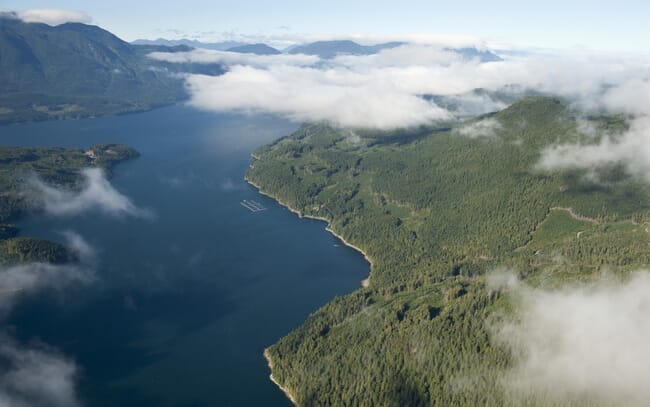Justin Trudeau's Liberal party's latest manifesto has pledged to achieve this shift in production practices by 2025, as well as introduce the country's inaugural aquaculture act.

© BCSFA
The manifesto states: “To keep Canada’s oceans healthy, we will move forward with more investments in marine science and fighting invasive species, and will work with coastal communities, Indigenous communities, and others to better protect fish stocks and marine habitats from changes resulting from climate change. This will include introducing Canada’s first-ever Aquaculture Act."
“In British Columbia, we will work with the province to develop a responsible plan to transition from open net pen salmon farming in coastal waters to closed containment systems by 2025.”
Responding to the manifesto a coalition of Canadian aquaculture producers, including the Canadian Aquaculture Industry Alliance, the BC Salmon Farmers Association, Ontario Aquaculture Association, Atlantic Canada Fish Farmers Association, BC Shellfish Growers Association, Aquaculture Association of Nova Scotia, PEI Aquaculture Alliance and Newfoundland Aquaculture Industry Association, issued the following joint statement saying:
“The Liberal platform commitment to moving all salmon production in British Columbia to ‘closed containment by 2025’ is highly irresponsible with potentially serious and far-reaching negative consequences for Canadian jobs and the environment”
“This is a reckless policy, not grounded in science, and it will threaten good middle-class jobs across Canada,” says Timothy Kennedy, president & CEO of the Canadian Aquaculture Industry Alliance.
The statement continues: “Salmon farming is the most environmentally sustainable large-scale farmed animal production in the world. It’s a solution to climate change. British Columbia farm-raised salmon production has been recognized as being a global top sustainable performer: the Monterey Bay Aquarium’s ‘Seafood Watch’ recognized the provincial production as ‘a good alternative’ last year, the first region so recognized in the world, and the FAIRR Global Index lists BC salmon producers as the top sustainable global producers of animal protein. It is a critical solution to the world’s growing demand for low impact, low-carbon emissions, high-protein food supply while alleviating pressure on threatened wild fish stocks.
“Seafood farming provides 26,000 full-time jobs across Canada. It generates $5.4 billion in economic activity in Canada. Salmon farming makes up close to 90 percent of this economic value. This is a young, highly innovative sector that is providing full-time jobs across Canada where these jobs are needed most: in indigenous, remote, and coastal communities.
“The Liberal party has consistently said it will base decisions on science. There is no evidence that BC salmon farms are harming wild salmon populations. While pilot projects to grow salmon to full size in closed containment are happening around the world, this work needs to continue in partnership and without any artificial mandates and timelines.
“No other nation has proposed this requirement of their salmon production. If implemented, this requirement will only move local, top-quality production to other countries that may not have the high environmental standards Canada already employs.”
“While we are already a top global performer, our sector is committed to constant improvement. Our farmers need support and confidence to continue to invest in Canada. This irresponsible policy platform seriously undermines this confidence,” Kennedy concluded.


